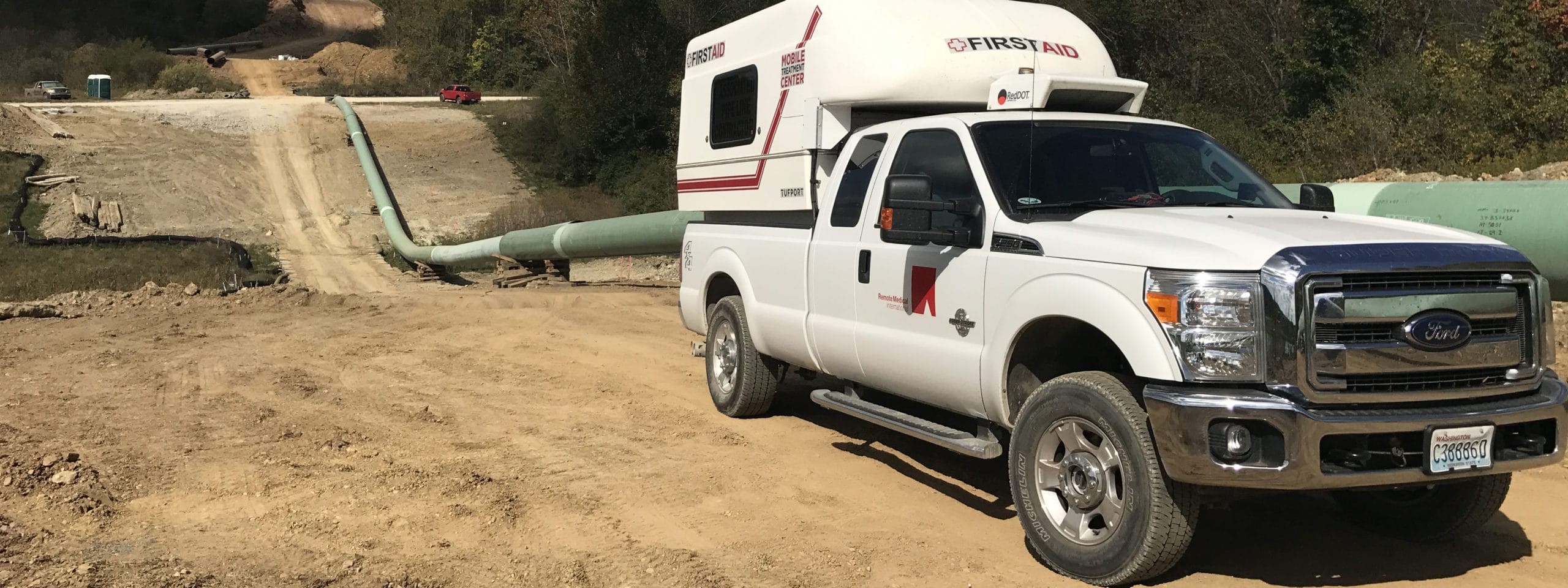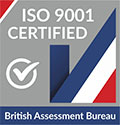Paramedic Tony Shope plays an active role in Remote Medical International’s Medical Treatment Center (MTC) program. Shope has provided care for workers since 2014 to eight different projects across five countries and has used the MTC program to connect with workers along pipeline right-of-ways.
“We’re taking a proactive approach to overall health care, which is creating a safer working environment. This proactive approach is changing the way these guys receive medicine and improves their lives,†said Shope.
Remote Medical International’s MTCs are equipped to handle rough terrain, allowing medical providers to travel to a worker on the right-of-way who may need medical assistance. We spoke with Shope about his work in the MTC program and how it helps create a safer environment for all workers.
Q: What are some of the most common injuries and health-related issues you see among pipeline workers?
Shope: Uncontrolled and undiagnosed hypertension, asthmatics, and diabetics are the most common health issues I find. At least 60% of injuries in the field involve the eyes.
There is a lot of work that needs to be done in this industry, but not enough qualified workers to go around. So a big part of injuries come from new workers who lack experience in the industry. Companies need to hire workers as fast as they can to complete these projects, so safety training and development often fall by the wayside.
Q: What are some of the benefits of our MTCs?
Shope: First and foremost, patrolling gives us the ability to be on the right-of-way with the workers every day. As I’m out driving around, I get to talk with the workers, give them water and electrolyte drinks, and understand their day-to-day. When I notice something is off about their usual day-to-day health, I make conversation with them, then see how they’re feeling. This gives us the opportunity to find small health issues and address them before they become big problems.
Safety managers don’t have to stress as much over how they’re going to treat their workers and keep them safe when they know we’re by their side. We take workers out of the rain to dry off, or put them in the shade and in the air-conditioned truck to cool off when it’s hot out. These small acts go a long way in building relationships and keeping workers happy and healthy.
In one instance, someone injured his thumb on the job, and I was able to quickly treat his injury, wrap it up, give him medications, and educate him on prevention, which only took about 20 minutes. Without our MTC, treating this small injury could have taken three hours to transport him off the project and to a clinic.
Q: Why is it important to build a trusting relationship with workers on a project?
Shope: These workers are like firefighters, medics, police officers—they’re tough. Yet, the industry is so short-handed. Work is plentiful and there are a lot of opportunities, but there aren’t as many quality jobs. A lot of the workers are afraid that if they get hurt their foreman will think they can’t handle the job.
By being on the right-of-way and handing out water, hydration packs, and electrolyte drinks, we build trust with the workers. They then come to us with their issues without the fear of losing their job. That’s where we find a lot of undiagnosed diabetics, hypertension, and asthmatics. That all comes from the workers trusting the MTC medics enough to come forward with their problems. This creates a much safer work environment, where workers have their asthma under control, and they have their blood pressure under control. They’re also far less likely to be injured on the job or potentially injure someone else.
Q: These workers often travel from project to project with their family—do you frequently treat the family members of workers as well?
Shope: Just about every other job I’ve been on, I’ve treated family members after work hours. They come to me with everyday health problems because they trust me after building up that relationship on the project.
A worker called me after hours to come to his camper and assess his wife who was ill. I took a look at her and determined she had pneumonia, she was dehydrated, and her lungs were full for two weeks. They wanted an opinion from Medic Tony before spending the money at the hospital. They took her to the emergency room to get treated and she was better after about a week.
Q: What is an example of a time you went out of your way to help a worker with a personal issue?
Shope: When we come out to these jobs, our support of their mission through medicine doesn’t have a nine to five time-frame. I’ve gotten calls after hours for chest pains to hangovers and everything in between.
One worker talked about how he was on a new medication and how it was making him feel. I spoke with the safety manager because even though the worker was off-site, we were short handed of good workers. Keeping this worker healthy and on the job makes the entire job site a safer place to work for everyone.
Q: Why did you feel it was necessary to personally help this worker?
Shope: At the end of the day we’re here to build relationships, and build a culture of safety. If you’re not feeling well, no matter when, you’re not focused and therefore not creating a safe workplace. When you come to the job and operate dangerous equipment, it’s my job as a medic to make sure you are at your healthiest so you can do your job safely.
Remote Medical International has provided our MTC program services to multiple pipeline construction projects. Contact us today to learn more about how our MTCs can benefit your project.


